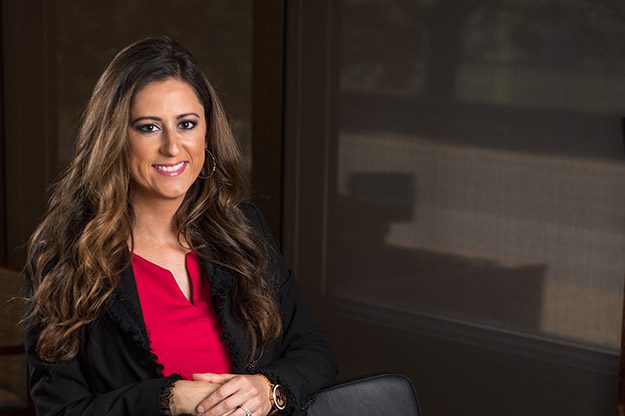Article
Resources
Article
West Virginia Workers’ Compensation COVID-19 Quick Guide

General Provisions
When must an Employer’s First Report of Injury be filed?
The employer must submit information about the injury to the insurance carrier within five (5) days of the employee's notice of injury.
What is the statute of limitations for the filing of an employee’s claim?
An employee has six (6) months after suffering a work-related injury to file a workers’ compensation claim. In regard to occupational diseases, an employee must file the claim within three (3) years of the following date, whichever last occurs: (a) the date on which the employee was last exposed to the particular occupational hazard involved; (b) the date the employee's occupational disease was made known to the employee by a physician; or (c) the date when the employee should reasonably have known of the occupational disease. W. Va. Code §23-4-15.
Compensability
Under West Virginia law, could COVID-19 be compensable as an occupational disease?
COVID-19 is not compensable as an occupational disease unless it is incurred in the course of and resulting from employment. W. Va. Code § 23-4-1(f). No ordinary disease of life to which the general public is exposed outside of the employment is compensable except when it follows as an incident of occupational disease. W. Va. Code § 23-4-1(f)(4). In other words, if an employee can prove by a preponderance of the evidence that the employee contracted coronavirus as a result of the employee’s job duties rather than from general public exposure, the coronavirus will likely be considered work-related. An employee must show a direct causal connection between the conditions under which work is performed and coronavirus, and that it follows as a natural incident of the work. If the employee can show studies or research link coronavirus to a particular hazard of the workplace, a prima facie case of causation arises upon a showing the employee was exposed to the hazard and is suffering from the disease. The employer must then offer medical evidence to refute the employee's claim.
Under West Virginia law, could COVID-19 be compensable as an accidental injury?
Contracting COVID-19 in the course of and resulting from employment could be considered an accidental injury if the COVID-19 is contracted while the employee is engaged in work activities. The key issue is causation and whether the employee can prove a causal nexus between the employment and the exposure. Front-line health care providers and first responders are more likely to contract the virus with patient exposure. Contact tracing using CDC guidelines in the employment setting is very important to determine the source of the exposure from a compensability analysis.
If an employee contracts COVID-19 while traveling on business, would it result in a compensable claim?
An employee would be entitled to compensation for an injury received while traveling on behalf of the employer's business. However, when an employee engages in a “major deviation from the business purpose” of the employment, the injury is not compensable. If the employee can prove exposure to COVID-19 while engaged in the business of the employer while traveling, the injury is likely compensable.
If a person is injured while teleworking, would those injuries be compensable?
Yes, so long as the injuries arose out of and in the course of employment, and the employee's home is regarded as a worksite.
Are psychiatric claims compensable for a person that has contracted COVID-19?
Psychological injuries that result from a physical injury are compensable if they manifest demonstrable physical symptoms. Mental-mental claims are not compensable.
If an employee is merely fearful of contracting COVID-19 at work, could the employee have a valid psychiatric claim?
No. An employee must actually contract coronavirus and have the virus when making a claim; a fear of eventually contracting coronavirus is not enough for a compensable claim.
Benefits
If COVID-19 were to be found compensable, what benefits might be due?
Injured employees are eligible for medical benefits (healthcare services, rehabilitation services, durable medical and other goods, and medical supplies). W. Va. Code § 23-4-3(a). They are also entitled to disability benefits including temporary total disability, temporary partial rehabilitation, permanent partial disability, and permanent total disability. Employees may also be entitled to vocational rehabilitation, death benefits, and funeral expenses.
If an employee is forced to quarantine as a result of a possible work exposure, must TTD benefits be paid?
No. TTD benefits are issued only if the employee has suffered a compensable injury that will result in a disability lasting longer than three days. The employee must actually contract coronavirus in order to have a compensable injury that may make the employee eligible for TTD benefits; forced quarantine due to a possible exposure does not equate to a compensable injury.
Must an employer/insurer pay for medical testing to rule out COVID-19?
No. Employers/insurers have the sole discretion regarding medical coverage decisions, including services rendered for the purpose of diagnosis, including diagnostic tests. Thus, it is within the employer/insurer’s discretion whether to pay for testing to rule out COVID-19.
May an employer/insurer make voluntary medical payments without prejudice?
Yes, if the employee has reported an injury and the employer/insurer does not protest the filing of the claim. W. Va. Code § 23-4-3(c).
If an employee is working light duty as a result of a workers’ compensation claim and there is a layoff due to the economic downturn or government-mandated closure, is the employee entitled to TTD?
If an employee is performing light duty work and then is laid off due to economic effects of COVID-19, the employee is not entitled to workers’ compensation benefits, depending on the factual situation. When an employee is receiving temporary partial rehabilitation benefits because the light duty job pays less than the pre-injury job, the employee's temporary partial rehabilitation benefits do not continue and temporary total disability benefits are not reopened because the employee was laid off as part of a COVID-19 full workforce layoff and not due to the compensable injury.
May an employer terminate medical benefits due to non-compliance with treatment as a result of fear of going to a health care provider during the pandemic?
No. In Emergency Order 20-EO-03, entered March 23, 2020, Insurance Commissioner Dodrill ordered workers' compensation insurers and other regulated entities shall not terminate or suspend a claimant's temporary total disability benefits for failure to undergo examinations or needed treatment during this insurance emergency. Importantly, Commissioner Dodrill ordered workers' compensation insurers and other regulated entities to review Executive Order 7-20 issued by Governor Jim Justice on March 19, 2020, and evaluate their telehealth and telemedicine programs to ensure utilization to the fullest extent possible.
Helpful COVID-19 Links
Spilman Thomas & Battle, PLLC's COVID-19 Task Force
West Virginia Office of the Insurance Commissioner's COVID-19 Page
West Virginia DHHR COVID-19 Page
CDC Workplace Guidance
Centers for Disease Control and Prevention - COVID-19
For additional information on workers' compensation and COVID-19 in West Virginia, please contact H. Dill Battle III or Charity K. Lawrence at 304.340.3800.



